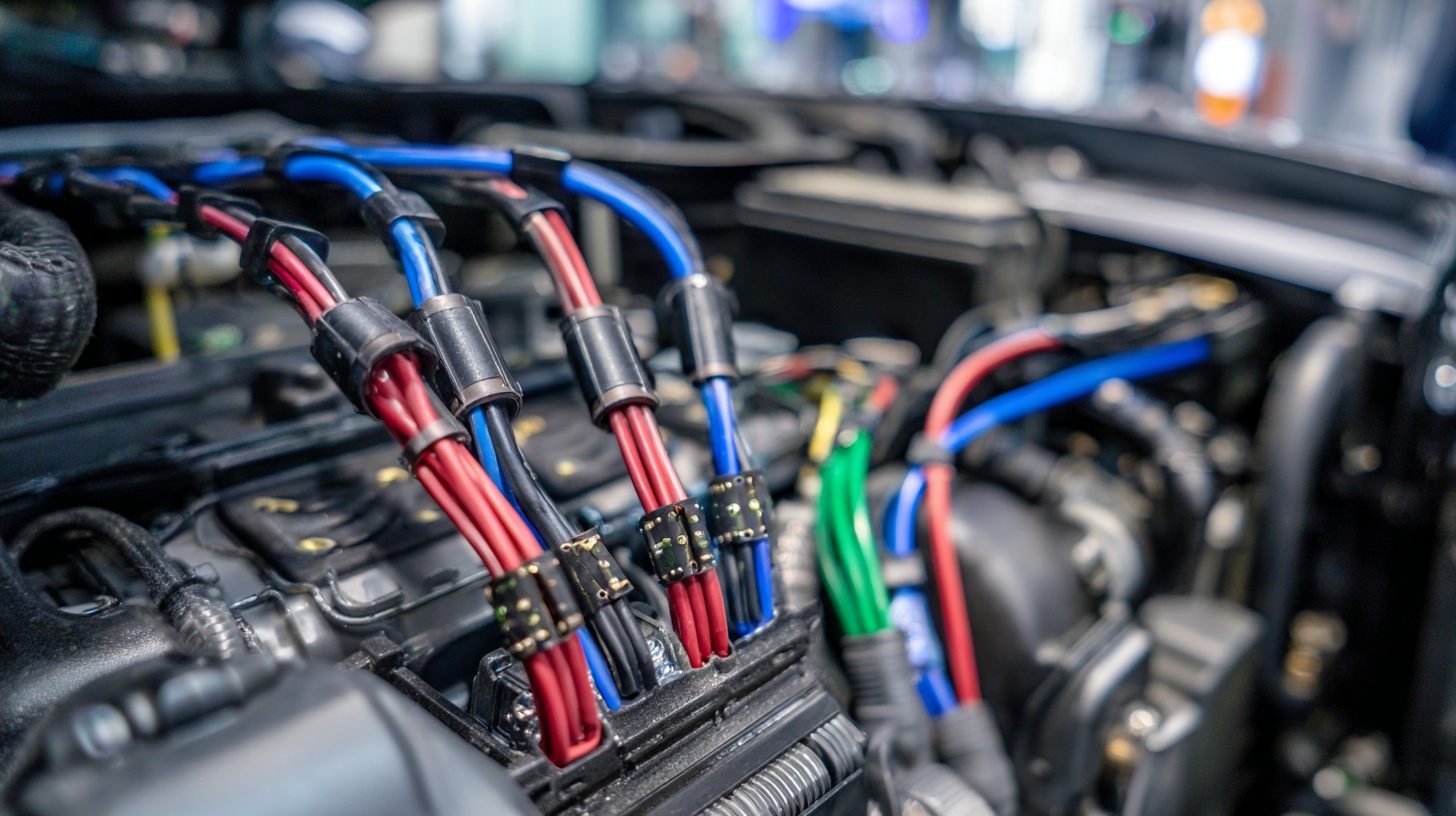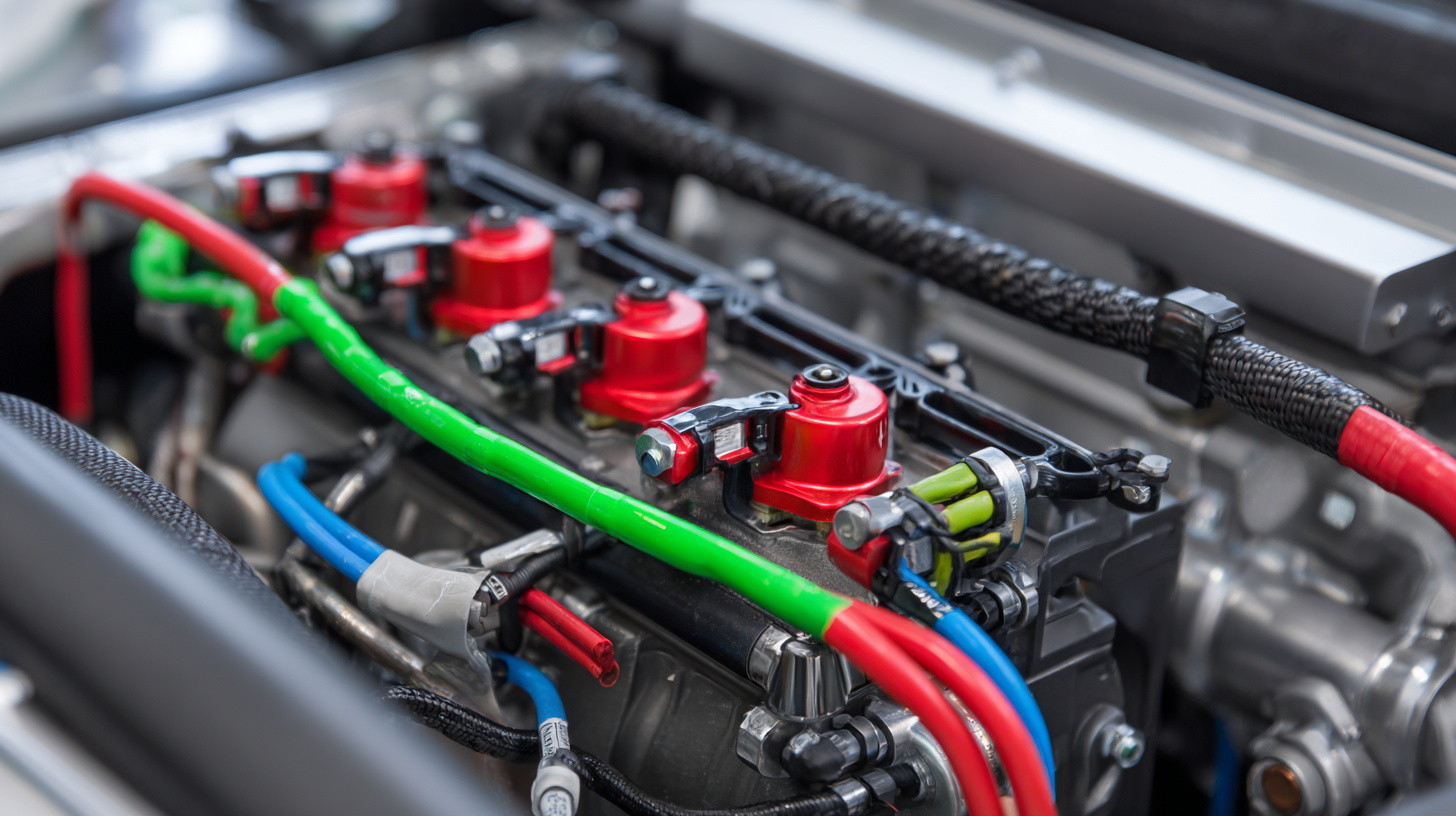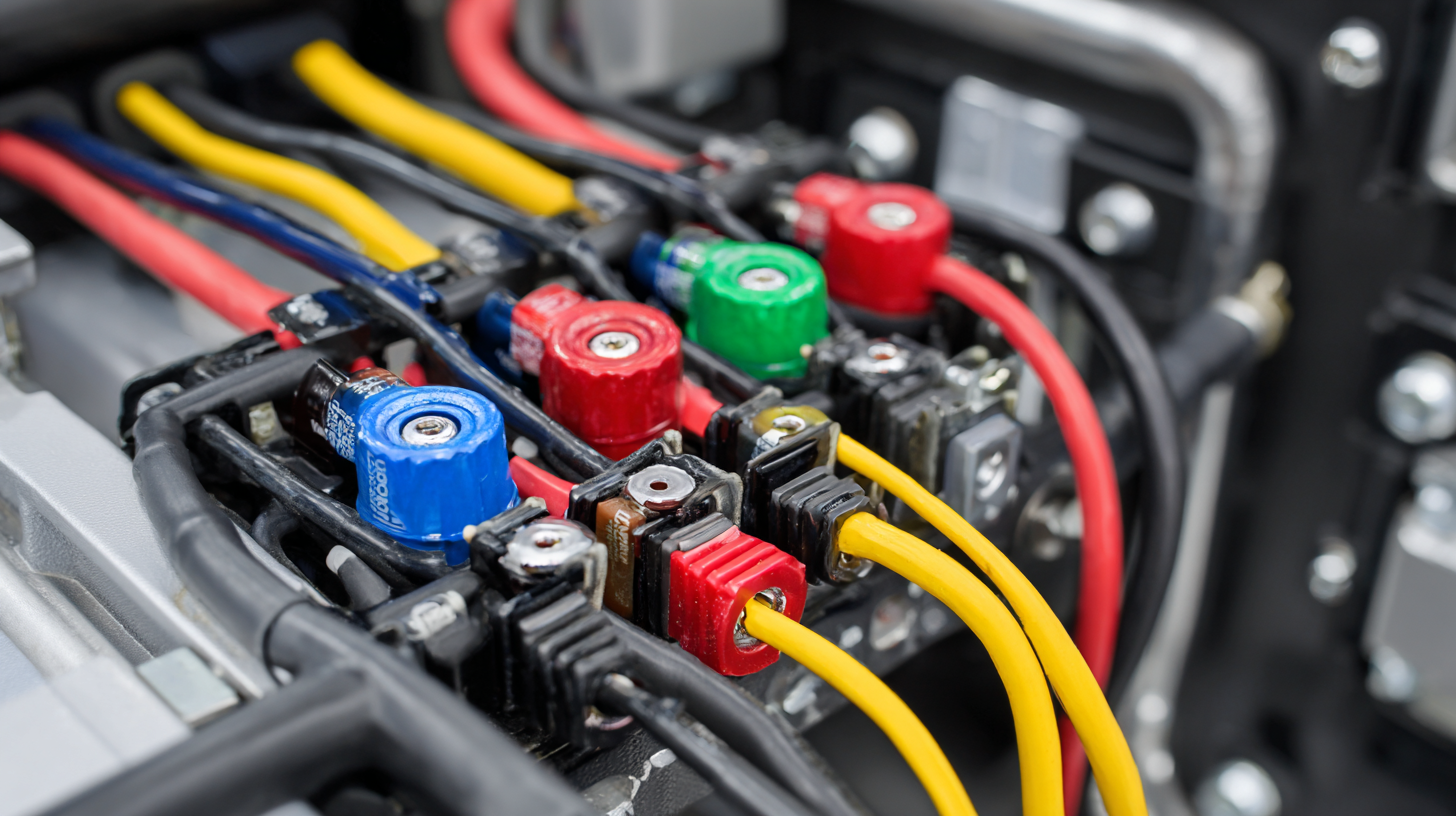Blog
Innovative Electrical Harness Solutions for Automotive Challenges in Global Supply Chains
In the rapidly evolving automotive industry, the significance of innovative electrical harness solutions cannot be overstated, particularly in the context of global supply chain challenges. According to a report by Allied Market Research, the global automotive wiring harness market is expected to reach $75.2 billion by 2027, growing at a CAGR of 4.3% from 2020. This growth underscores the essential role that electrical harnesses play in vehicle functionality, reliability, and safety. As manufacturers face disruptions in supply chains exacerbated by geopolitical factors and the ongoing push for sustainable practices, the demand for efficient and adaptable electrical harness designs becomes critical. These solutions not only help mitigate supply chain risks but also pave the way for advancements in electric and autonomous vehicle technologies, which rely heavily on optimized wiring systems.

The Evolution of Electrical Harness Technologies in the Automotive Sector
The automotive sector has witnessed significant advancements in electrical harness technologies, largely driven by the need for greater efficiency and reliability in increasingly complex vehicles. Traditionally, electrical harnesses were designed with a focus on basic functionality; however, the evolution of these technologies has adapted to meet the demands of modern automotive systems. This includes the integration of lightweight materials and advanced manufacturing techniques, which not only improve performance but also reduce production costs.
In addition to performance enhancements, modern electrical harness solutions address the challenges posed by global supply chains. The shift towards electrification in vehicles necessitates robust harness designs that can withstand varying environmental conditions while maintaining optimal connectivity. Manufacturers are now employing smart technology and automated assembly processes that ensure precision and consistency in harness production. As the automotive industry continues to evolve, the role of innovative electrical harness solutions will be critical in overcoming supply chain challenges and supporting the transition to more sustainable and advanced vehicles.
Understanding the Role of Quality Control in China’s Manufacturing Industry
In today's rapidly evolving automotive industry, quality control has become a pivotal factor in managing the complexities of global supply chains, particularly in manufacturing hubs like China. As the demand for innovative electrical harness solutions increases, so does the imperative for stringent quality assurance measures. The integration of sophisticated quality control systems can ensure that products meet both local and international standards, minimizing the risks associated with production defects and enhancing overall supply chain resilience.
Recent developments in global ESG (Environmental, Social, and Governance) frameworks highlight the importance of meticulous compliance and reporting standards. China's manufacturing sector is significantly influenced by these initiatives, which are designed to foster transparency and accountability. The emergence of international sustainability reporting standards reinforces the need for manufacturers to adopt robust quality control practices. This adaptation not only supports regulatory compliance but also strengthens brand reputation, ultimately contributing to long-term competitiveness in the global market.
Innovative Electrical Harness Solutions for Automotive Challenges in Global Supply Chains
| Dimension | Description | Importance | Data Source |
|---|---|---|---|
| Production Efficiency | Measures the effectiveness of the manufacturing process. | Critical for reducing costs and improving output. | Industry Reports |
| Product Quality | Assessment of defect rates and compliance with standards. | Essential for customer satisfaction and brand reputation. | Quality Control Metrics |
| Supply Chain Resilience | Ability to adapt to disruptions and maintain production. | Critical for sustained operations during global crises. | Logistics Studies |
| Lead Time | Time taken from order to delivery. | Directly affects market responsiveness and customer relations. | Manufacturing Insights |
| Cost Reduction Strategies | Methods to lower production costs without compromising quality. | Vital for competitive pricing in the market. | Financial Analysis Reports |
Strategies for Navigating Global Supply Chain Challenges in Automotive Production
The automotive industry is experiencing unprecedented challenges in global supply chains, highlighting the need for innovative strategies to navigate these complexities. As manufacturers face disruptions ranging from material shortages to logistical bottlenecks, the emphasis on developing robust electrical harness solutions becomes crucial. These harnesses not only streamline vehicle assembly but also enhance the overall efficiency of production processes. By leveraging advanced manufacturing techniques and materials, companies can mitigate risks associated with supply chain delays.
To effectively tackle these challenges, automotive producers can adopt a proactive approach by diversifying their supplier base and integrating technology-driven logistics solutions. Establishing close relationships with key suppliers ensures a steady flow of critical components, while using real-time data analytics allows for better decision-making and resource allocation. Furthermore, embracing automation in production lines can lead to significant improvements in efficiency and flexibility, enabling manufacturers to respond swiftly to changing market demands and supply constraints. By implementing these strategies, the automotive industry can fortify its supply chains and maintain competitiveness in a turbulent global landscape.
Innovative Electrical Harness Solutions for Automotive Challenges
This chart illustrates the impact severity of various challenges faced in global automotive supply chains, evaluating aspects such as material shortages, labor issues, logistics delays, cost increases, and quality control from a perspective of 1 to 10.
Case Studies: Successful Implementation of Innovative Harness Solutions
The automotive industry is undergoing a transformative shift, driven by innovation in electrical harness solutions that address complex global supply chain challenges. One notable case study is the implementation of flexible wiring harness systems by a leading automotive manufacturer, which resulted in a 20% reduction in assembly time and improved reliability under extreme conditions. According to a recent market report by Research and Markets, the global automotive wiring harness market is projected to reach USD 78.57 billion by 2025, highlighting the increasing importance of efficient electrical systems in vehicle design.

Another impressive illustration can be seen in the adoption of lightweight materials for electrical harnesses. A prominent automaker successfully integrated aluminum and composite materials into their electrical systems, decreasing the overall weight by 15%. This not only enhanced vehicle performance but also contributed to a significant reduction in carbon emissions, aligning with industry standards for sustainability. The deployment of advanced manufacturing technologies, such as 3D printing for custom harness solutions, has further enabled companies to respond agilely to market demands, ensuring that they stay competitive in the ever-evolving automotive landscape.
Future Trends in Automotive Electrical Harness Design and Manufacturing
The automotive industry is undergoing a transformative phase, with electrical harness design and manufacturing playing a pivotal role in addressing contemporary challenges. According to a report by Mordor Intelligence, the global automotive wiring harness market is expected to grow at a CAGR of 6.2% from 2021 to 2026. This growth is driven by the increasing demand for advanced safety features and the proliferation of electric vehicles (EVs), which require more complex wiring systems to support their sophisticated electrical architectures.
As automakers pivot towards electrification and connectivity, innovative design approaches are becoming essential. Advanced techniques such as modular harnessing, which allows for flexible configurations, and lightweight materials are emerging trends in harness manufacturing. A report by Grand View Research indicates that the market for lightweight automotive components is projected to reach $98.82 billion by 2027, reflecting the industry's shift towards efficiency and sustainability. Manufacturers are increasingly leveraging 3D printing technology to produce customized harness components, reducing lead times and enhancing supply chain responsiveness. These changes not only address current manufacturing challenges but also set the stage for a more resilient automotive supply chain in the face of global disruptions.

© 2023 JEM Electronics, Inc. – United States Cable Assembly. All rights reserved.

